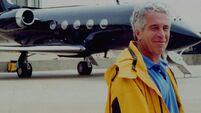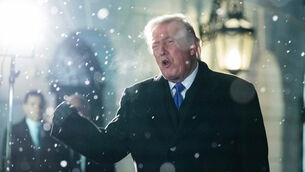Four oil wells may have been lit
Witnesses in Kuwait about eight miles south of the border spotted flickering flames on the horizon after a series of explosions shook buildings in the area and sent farm workers running outside.
The Arab satellite television channel al-Arabiya reported fires had erupted in Iraq's valuable al-Rumeila field west of Basra and just north of the Kuwaiti border.














